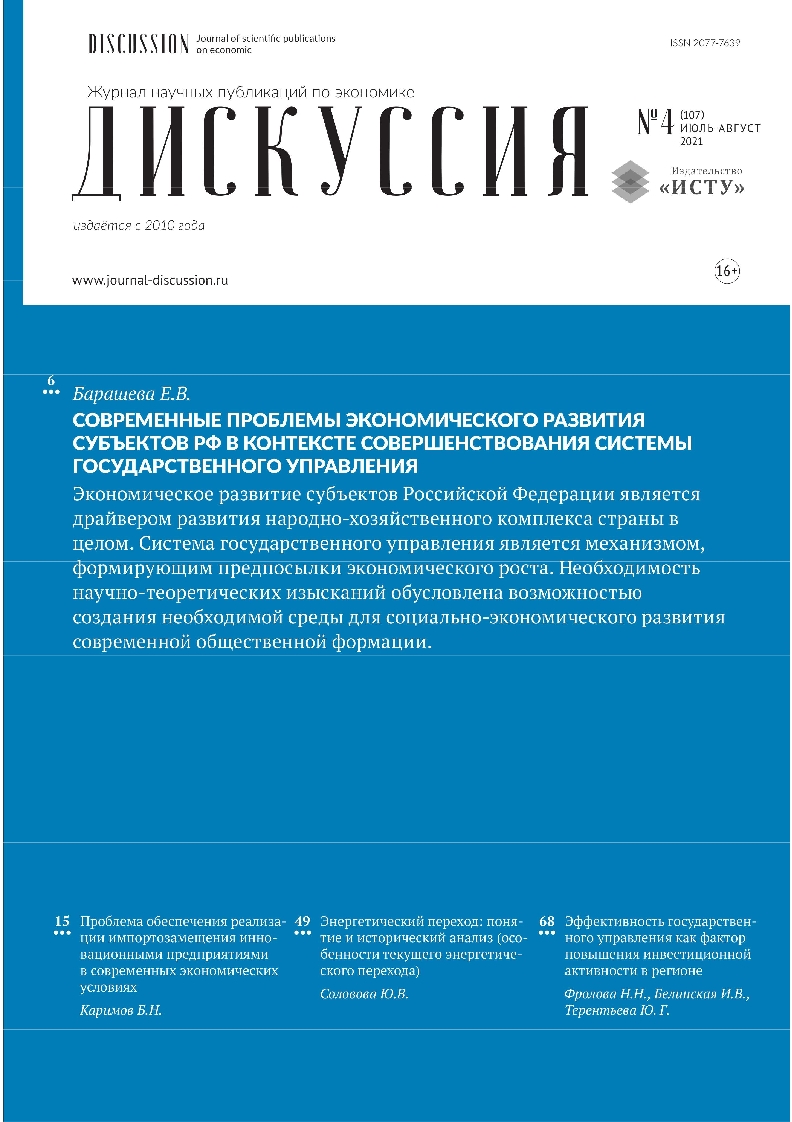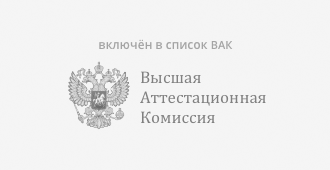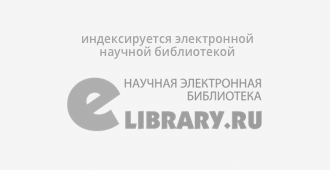Fuel and energy complex of Turkey in the context of sustainable development
Keywords:
Turkey, energy, sustainable development, green energy, trans- formation, tourism, transport, industry.Abstract
Turkey’s Economy is one of the dynamically developing economies, which is currently overcoming a critical stage of the development of the fuel and energy complex. This stage is characterized by the desire for green energy introductionand an attempt to create a sustainable energy complex to reduce energy imports, while at the same time the country is trying to reduce the cost of such energy transformation. The result of these opposite trends is the uncertainty of the future course of development of the fuel and energy sector of the country. This uncertainty has a significant effect not only the fuel and energy sector, but also on such major sectors of the country’s economy as logistics and transport, tourism, light industry, metalworking, machinery and the furniture industry. These sectors are the most important for Turkey’s gross domestic product (GDP). The purpose of the study is to prove the transformational nature of the development of energy in Turkey at the present stage in the direction of green energy and to identify its main features. From this goal, as well as from the analysis of current trends in supply and demand in the country’s energy market, the research hypothesis follows: the most economically significant sectors of the Turkish economy will not receive significant losses from a moderate green energy transformation.
The main result of the article is the proof of the hypothesis put forward, as well as the identification of the most at-risk of the main sectors of the Turkish economy.
Downloads
Metrics
References
Вартазарова Л.К. (2019). Современная Турция: тренды развития и значение для России. М.: ИМЭМО РАН.
Цели устойчивого развития. (10.09.2021 г.). Получено из ООН. [Электронный ресурс]. Режим доступа: https://www.un.org/sustainabledevelopment/ru/sustainable-development-goals/
Сафонкина Е. (2014). Турция как новый актор политики «Мягкой силы». // Вестник международных организаций: образование, наука, новая экономика. С. 145-167.
Turkey. (10.09.2021 г.). Полученоиз Internation energy agency. [Электронный ресурс]. Режим доступа: https://www.iea.org/countries/turkey.
Аристова Л. (2019). Туристический комплекс Турции и стран ЦА: состояние, проблемы, перспективы. // Восточная аналитика. С. 7-12.
Пашковская И. (2010). Турция в деятельности Евросоюза по энергообеспечению государств членов ЕС. // Вестник МГИМО Университета. С. 217-224.
Турция в активном поиске. (10.09.2021 г.). Получено из Нефть и Капитал. [Электронный ресурс]. Режим доступа: https://oilcapital.ru/article/general/22-07-2020/turtsiya-v-aktivnom-poiske.
Эрдоган заявил о прорыве Турции в сфере энергетики благодаря АЭС «Аккую». (10.09.2021 г.). Получено из Известия. [Электронный ресурс]. Режим доступа: https://iz.ru/1134910/2021-0310/erdogan-zaiavil-o-proryve-turtcii-v-sfere-energetiki-blagodaria-aes-akkuiu.
Бекулова С. (2019). Возобновляемые источники энергии в условиях новой промышленной революции: мировой и отечественный опыт. // Мир новой экономики. №13(4). С. 14-21.
Ергин Д. (2021). Новая карта мира. Энергетические ресурсы, меняющийся климат и столкновение наций. М.: Альпина.
Лыжин Д. (2011). Перспективы развития “зелёной” экономики: вызовы для России. Органическое сельское хозяйство как часть “зелёной” экономики. М.: РИСИ. С. 46-48.
Annual tourism income in Turkey from 2001 to 2020. (10.09.2021 г.). Получено из Statista.[Электронный ресурс]. Режим доступа: https://www.statista.com/statistics/920806/total-tourism-income-in-turkey/
Turkey’s renewable energy investments reach $7B in 2020. (10.09.2021 г.). Получено из AA Energy. [Электронный ресурс]. Режим доступа:https://www.aa.com.tr/en/energy/renewable/turkeys-renewable-energy-investments-reach-7b-in-2020/31659.
Turkey - Contribution of travel and tourism to GDP as a share of GDP. (10.09.2021). Получено из Knoema. [Электронный ресурс]. Режим доступа: https://knoema.com/atlas/Turkey/topics/Tourism/Travel-and-Tourism-Total-Contribution-to-GDP/Contribution-of-travel-and-tourism-to-GDP-percent-of-GDP.
Turkey: Share of economic sectors in gross domestic product (GDP) from 2010 to 2020. (10.09.2021). Получено из Statista. [Электронный ресурс]. Режим доступа: https://www.statista.com/statistics/255494/share-of-economic-sectors-in-the-gross-domestic-product-in-turkey/
Downloads
Published
How to Cite
Issue
Section
Categories
License
Copyright (c) 2021 И.В Пашаев, И.А. Гулиев

This work is licensed under a Creative Commons Attribution-NonCommercial-NoDerivatives 4.0 International License.
Авторы, публикующие произведения в журнале «Дискуссия», соглашаются со следующими условиями:
- Авторы сохраняют за собой авторское право и предоставляют журналу право первой публикации произведения, одновременно лицензированной в соответствии с лицензией Creative Commons Attribution, позволяющей другим лицам пользоваться произведением с подтверждением авторства и первоначальной публикации в журнале «Дискуссия».
- Авторы вправе заключать с иными лицами лицензионные договоры на условиях простой (неисключительной) лицензии на использование опубликованного в журнале «Дискуссия» произведения (например, размещение его в базах данных университетов, публикация в книге), со ссылкой на его оригинальную публикацию в этом журнале.
- Автор гарантирует, что является правообладателем всех материалов, предоставляемых в редакцию, и что исключительные права на данные материалы не переданы или не предоставлены другим лицам.
- Авторам разрешено и рекомендуется размещать свое произведение в Интернете до и во время процесса подачи, поскольку это может привести к продуктивному обмену, а также к более раннему и более широкому цитированию опубликованных работ.
С момента загрузки произведения и сопроводительных материалов через раздел "Отправка материалов", автор полностью и безоговорочно принимает (акцептует) публичную оферту о заключении авторского соглашения об опубликовании произведения. В соотвтетствии с этим соглашением автор предоставляет издателю на безвозмездной основе неисключительную лицензию на использование созданного автором произведения.
С момента получения произведения и прилагаемых к нему материалов журнал "Дискуссия" вправе использовать полученные произведения без ограничений по своему усмотрению и в пределах всего срока действия исключительных прав, но с обязательным указанием имени автора (авторов) произведения, в том числе публиковать произведения (полностью или в сокращении) на территории всего мира, переводить на другие языки, направлять в репозитории научной информации, размещать в сети Интернет и использовать другими законными способами.









